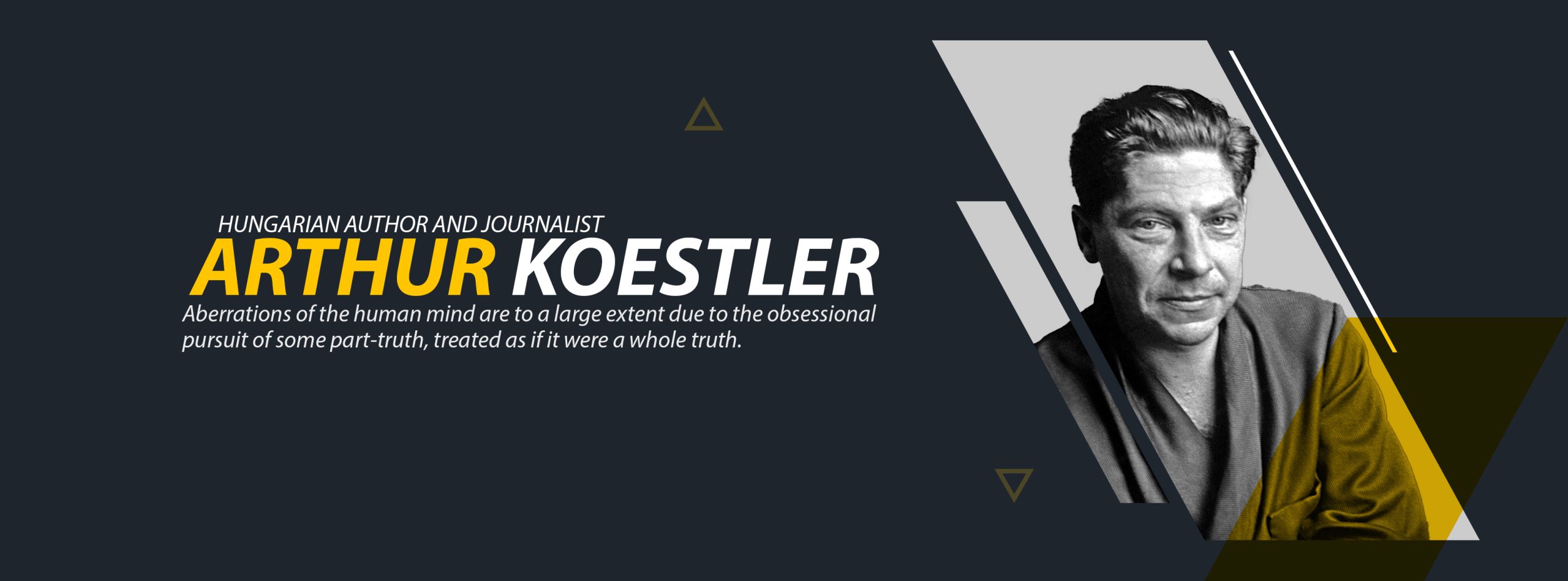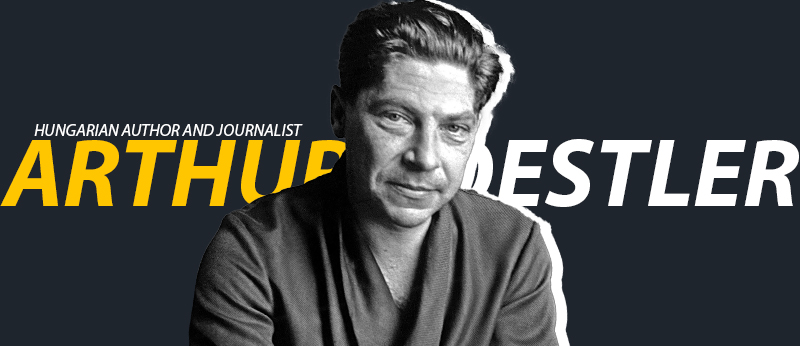The top 10 most inspiring quotes by Arthur Koestler
- The principal mark of genius is not perfection but originality—the opening of new frontiers.
- Creative activity is a type of learning process where the teacher and pupil are located in the same individual.
- The principle that the end justifies the means is and remains the only rule of political ethics; anything else is just a vague chatter and melts away between one’s fingers.
- I went to Communism as one goes to a spring of fresh water, and I left Communism as one clambers out of a poisoned river strewn with the wreckage of flooded cities and the corpses of the drowned.
- The fact is: I no longer believe in my own infallibility. That is why I am lost.
- The ‘gallows’ are not only a symbol of death but also a symbol of cruelty, terror, and irreverence for life; they are the common denominator of primitive savagery, medieval fanaticism, and modern totalitarianism.
- History knows no scruples and no hesitation. Inert and unnerving flows towards her goal. History knows her way. She makes no mistakes.
- Some of the greatest discoveries…consist mainly in the clearing away of psychological roadblocks which obstruct the approach to reality, which is why,post factum, they appear so obvious.
- But who will be proved right? It will only be known later. Meanwhile, he is bound to act on credit and sell his soul to the devil in the hope of history’s absolution.
- Aberrations of the human mind are to a large extent due to the obsessional pursuit of some part-truth, treated as if it were a whole truth.

Arthur Koestler (1905–1983) was a Hungarian-British author, journalist, and political activist known for his diverse literary contributions and thought-provoking works. Born in Budapest, Koestler initially pursued a career in science but later turned to writing. His early experiences as a communist sympathizer and war correspondent during the Spanish Civil War influenced his political views.
Koestler gained international acclaim with his novel “Darkness at Noon” (1940), a powerful exploration of totalitarianism and political ideology. The book, set during Stalin’s purges, delves into the psychological struggles of its protagonist, Rubashov, a disillusioned revolutionary. Koestler’s ability to blend fiction with political analysis marked him as a keen intellectual.
Throughout his career, Koestler penned a variety of works, including essays, autobiographies, and scientific writings. His interests ranged from psychology to parapsychology, with notable titles like “The Act of Creation” (1964) and “The Ghost in the Machine” (1967).
Despite his literary success, Koestler’s personal life faced controversy, including accusations of sexual misconduct. His legacy remains complex, with discussions around his contributions to literature, political thought, and the ethical implications of his personal conduct.
👉Listen to the best music from all over the world at www.liveonlineradio.net #Arthur_Koestler #quotes #FM #Online_radio #radio #live_online_radio #live #world_radio





